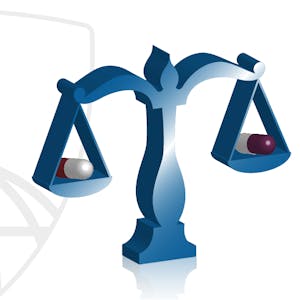Design and Interpretation of Clinical Trials
Clinical trials are experiments designed to evaluate new interventions to prevent or treat disease in humans. The interventions evaluated can be drugs, devices (e.g., hearing aid), surgeries, behavioral interventions (e.g., smoking cessation program), community health programs (e.g. cancer screening programs) or health delivery systems (e.g., special care units for hospital admissions). We consider clinical trials experiments because the investigators rather than the patients or their doctors select the treatment the patients receive. Results from randomized clinical trials are usually considered the highest level of evidence for determining whether a treatment is effective because trials incorporates features to ensure that evaluation of the benefits and risks of treatments are objective and unbiased. The FDA requires that drugs or biologics (e.g., vaccines) are shown to be effective in clinical trials before they can be sold in the US.The course will explain the basic principles for design of randomized clinical trials and how they should be reported. In the first part of the course, students will be introduced to terminology used in clinical trials and the several common designs used for clinical trials, such as parallel and cross-over designs. We will also explain some of the mechanics of clinical trials, like randomization and blinding of treatment. In the second half of the course, we will explain how clinical trials are analyzed and interpreted. Finally, we will review the essential ethical consideration involved in conducting experiments on people.
None
Syllabus
Syllabus - What you will learn from this course
Week 1
Types of Trial Designs
Week 2
Randomization and Masking
Week 3
Outcomes and Analysis
Week 4
Ethics
Week 5
Reporting Results
Week 6
Randomized Clinical Trials
FAQ
When will I have access to the lectures and assignments?
Access to lectures and assignments depends on your type of enrollment. If you take a course in audit mode, you will be able to see most course materials for free. To access graded assignments and to earn a Certificate, you will need to purchase the Certificate experience, during or after your audit. If you don't see the audit option:
The course may not offer an audit option. You can try a Free Trial instead, or apply for Financial Aid.
The course may offer 'Full Course, No Certificate' instead. This option lets you see all course materials, submit required assessments, and get a final grade. This also means that you will not be able to purchase a Certificate experience.
What will I get if I purchase the Certificate?
When you purchase a Certificate you get access to all course materials, including graded assignments. Upon completing the course, your electronic Certificate will be added to your Accomplishments page - from there, you can print your Certificate or add it to your LinkedIn profile. If you only want to read and view the course content, you can audit the course for free.
Is financial aid available?
Yes. In select learning programs, you can apply for financial aid or a scholarship if you can’t afford the enrollment fee. If fin aid or scholarship is available for your learning program selection, you’ll find a link to apply on the description page.
Reviews
This course really helped me to understand trials and gave me starting knowledge about how to design a trial. But it is not enough itself, and you should consider taking biostatistics classes.
This course would be most useful to the participant if pursued within a short time-frame, of maximum of 6 weeks. Both lecturers were clear and good communicators. I would take more of their classes.
Excellent beginner course on design and interpretation of clinical trials, complements a lot of what I reviewed on my classes and I would like to take a more advanced course on the topic. Thank you.
A very good course for beginner to get a hang of how clinical trial works in real world setting. Instructors give lots of real Clinical Trials that help us link to the course materials.
